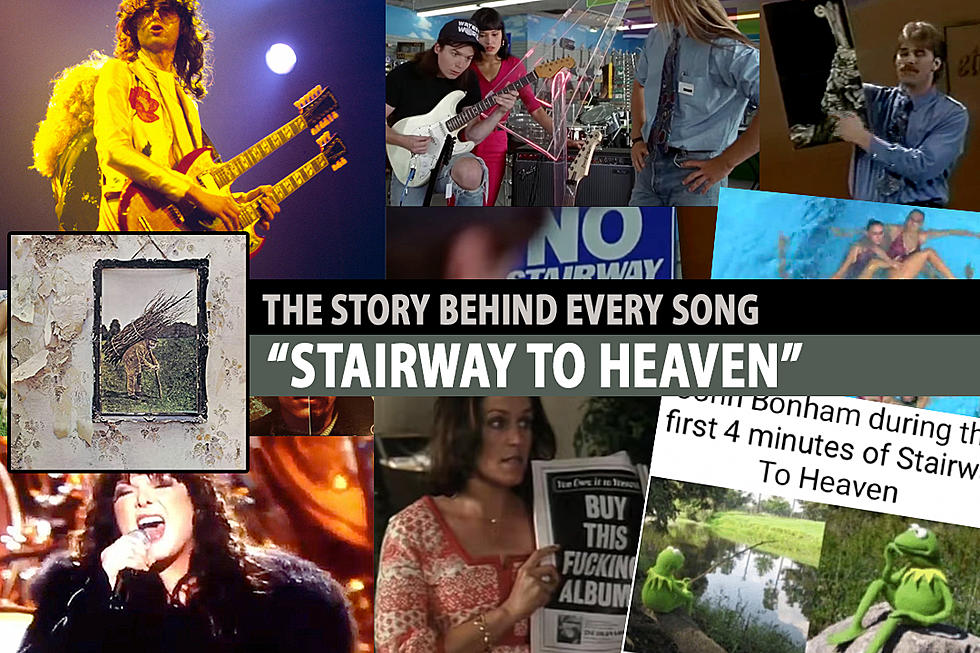
Led Zeppelin Copyright Case Draws Support From 123 Other Acts
More than 100 fellow acts have joined in support of Led Zeppelin, as a legal action involving the song "Stairway to Heaven" moves through the courts.
An amicus brief filed with the Ninth Circuit Court of Appeals says they did so because each will "undoubtedly be affected by the outcome of this critically important case."
A California federal jury initially rejected claims that Led Zeppelin lifted a riff from Spirit's "Taurus" for the intro of their most famous song. Along the way, however, a member of Zeppelin's legal team admitted the riff actually exists in the public domain. That opened the case up to appeal by estate trustee Michael Skidmore, who is representing late Spirit songwriter Randy California.
Now a group that includes Tool, Sean Lennon and Korn, as well as the Songwriters of North America and the Nashville Songwriters Association International, has lined up on the other side: "There was no evidence presented at the Led Zeppelin trial that the otherwise unprotected elements that appeared in 'Taurus' were presented in such an original pattern or compilation as to garner copyright protection," according to the amicus brief.
Francis Malofiy, Skidmore's attorney, dismissed the effort. "It represents 123 songwriters out of roughly 500,000 – a whopping .02 percent!" Malofiy told Digital Music News. "It's really nothing more than a blast piece for the industry."
The brief goes on to argue that the "the purported 'selection and arrangement' in 'Taurus' that also appeared in 'Stairway to Heaven' merely [consists] of random similarities of commonplace elements. After filtering out the generic elements or musical commonplaces identified in 'Taurus' under the extrinsic test, what remains are two completely different songs."
Led Zeppelin's industry supporters also take on the issue of "public domain," which would allow anyone to appropriate potentially non-copyrighted elements of Led Zeppelin's composition. "Significantly, however, although facts and elements in the public domain, as well as commonplace elements, if arranged in an original manner, may qualify for thin copyright protection," the filing states, "the component parts themselves do not become protected by copyright simply by virtue of their combination into a larger whole."
Supporters add that if the Ninth Circuit Court were to rule in favor of Spirit, it would "cause substantial confusion. Any artist who reads the opinion may very well fear that the very common use of any 'descending chromatic scales, arpeggios or short sequences of three notes,' or any elements in the 'public domain,' could form the basis of an infringement action."
Led Zeppelin Albums Ranked
Why Led Zeppelin Won’t Reunite Again
More From 98.3 The Snake










